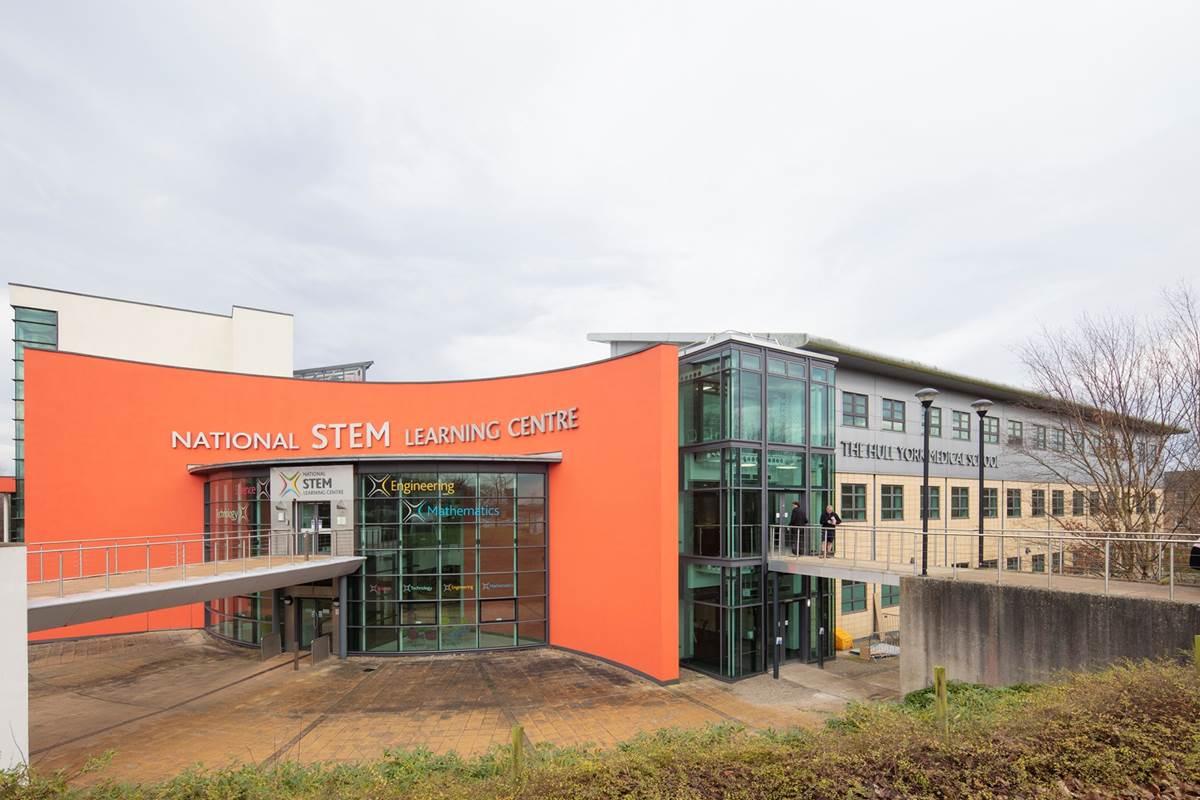As a direct response to a growing shortage of doctors within the UK, this facility has delivered an outstanding medical training facility for the Yorkshire Region. The Health Secretary committed to increase the number of medical school places available by 1,500 to be made available from 2020. This initiative included the award of an additional 90 places to the Hull York Medical School (HYMS), a unique partnership with the Universities of Hull and York, to offer exceptional medical education.
Through early engagement with all stakeholders and the use of digital technology our integrated team has provided outstanding value for money and risen to the significant challenge to successfully deliver a world class medical school.
Key achievements include:
- Fast track two-year programme from initial concept to handover of the facility to the meet the opening date.
- Early collaboration enabled through appointment of a multi-disciplinary team via a framework appointment to allow an experienced team to hit-the-ground-running with stakeholder engagement.
- Design team partners were selected based on quality and specifically their knowledge of the University requirements and stakeholders to streamline the design process which was crucial to achieve programme and a quality outcome.
- Contractor appointment via the collaborative YORbuild2 framework which fostered a partnering approach, high-quality and appointment of the Interserve team who are experienced in health and education which added value and ensure successful delivery on-site.
- Construction delivery in just 28 weeks meeting a very challenging programme, delivering new spaces and safeguarding funding and revenue streams.
- Working within a challenging fixed budget, which represented £1,560/m2; this was approximately 30% below the BCIS mean average for a facility of this type.
- Back to back supply chain contracts, provided significant innovations to the project, and provided value savings of £460k without affecting functionality or aesthetics.
- Repurposing an existing building, reducing embodied carbon by 26%
- Enhancing the campus and the student experience.
- Safe delivery with zero accidents or complaints on a logistically challenging university campus with over 20,000 students.
- Developing safe solutions to decant in phases, maintaining access and keeping the adjacent car park operational.
- As a collegiate university managing and satisfying the objectives of eight key stakeholders.
- Providing specialist learning and research environments, working with specialist equipment installers.
- A low maintenance solution, supporting client UN sustainability targets.
- Scheme design developed utilising BIM supporting 3D stakeholder engagement and a link into the Universities campus wide maintenance model which our team has developed.
- Redefining the standard of medical training.
- Providing over £14.7m of social value outcomes for the region.
- Generating in excess of £95,000 in procurement savings.
The team provided lessons learned, shared best practice and our collaborative approach with a variety of stakeholders. The construction team provided CPD site visits and shared case studies. Lessons learned were shared in adopting early contractor and sub-contractor engagement, and best practice provided back to YORbuild to further support future collaboration.
Winning facts
- The ‘impossible project’ has been successfully delivered, through true collaboration and by embracing digital-technology to improve stakeholder engagement and use resources more efficiently. Early collaboration brought supply chain expertise to the table providing over £400k of savings and delivering the building 30% below the BCIS mean average for a facility of this type. We developed a number of innovative ways of working to provide solutions to many challenges to enable more doctors to be trained in a world class teaching environment. Long term benefits took preference over short term wins.
- The whole team supported the clients UN Sustainable Development goals and aligned a project specific sustainability strategy. By holding designing out waste workshop, we were able to divert 98% of waste from landfill, utilising take/buy back schemes via the subcontractors and used a local waste transfer station, located less than two miles from the site. Rainwater harvesting was used on the site and all taps changed from lever to push button, to provide a 32% reduction in water use. Car sharing, off-site use, park and ride eliminated 800 less vehicle movements, recorded by M-site technology and reducing our carbon impact by 20%.
- Outstanding social value outcomes have been delivered, including a £14.7m injection within the local economy, and the generation of 2 new jobs, 2 apprenticeships, 9 work experience placements, 10 student visits/workshops, 160 apprentice weeks and the placement of 98% of subcontracts locally, including 72% with SME’s. The project was bid by an apprentice estimator, and delivered with key input from an apprentice site manager and apprentice project surveyor.

